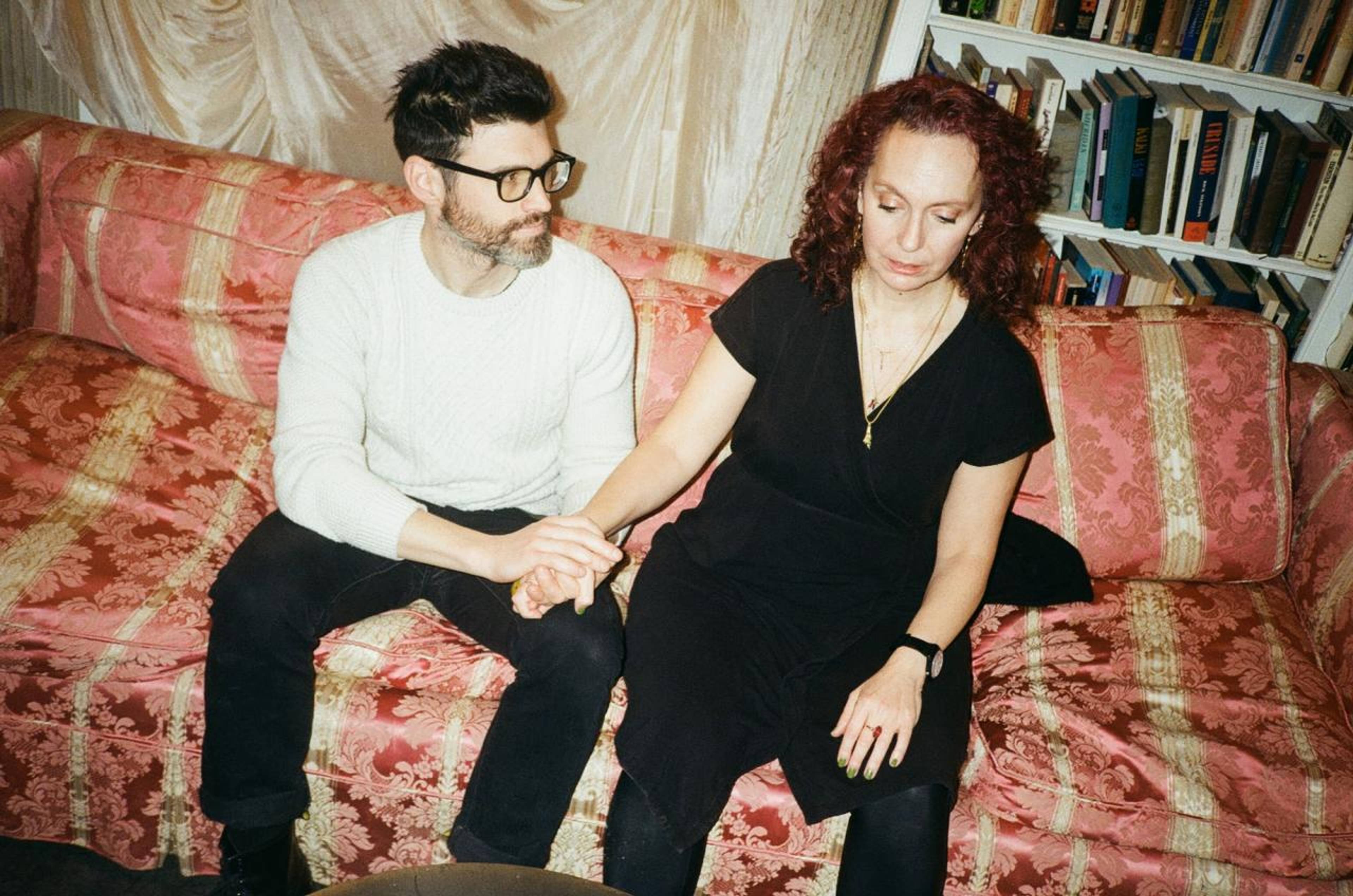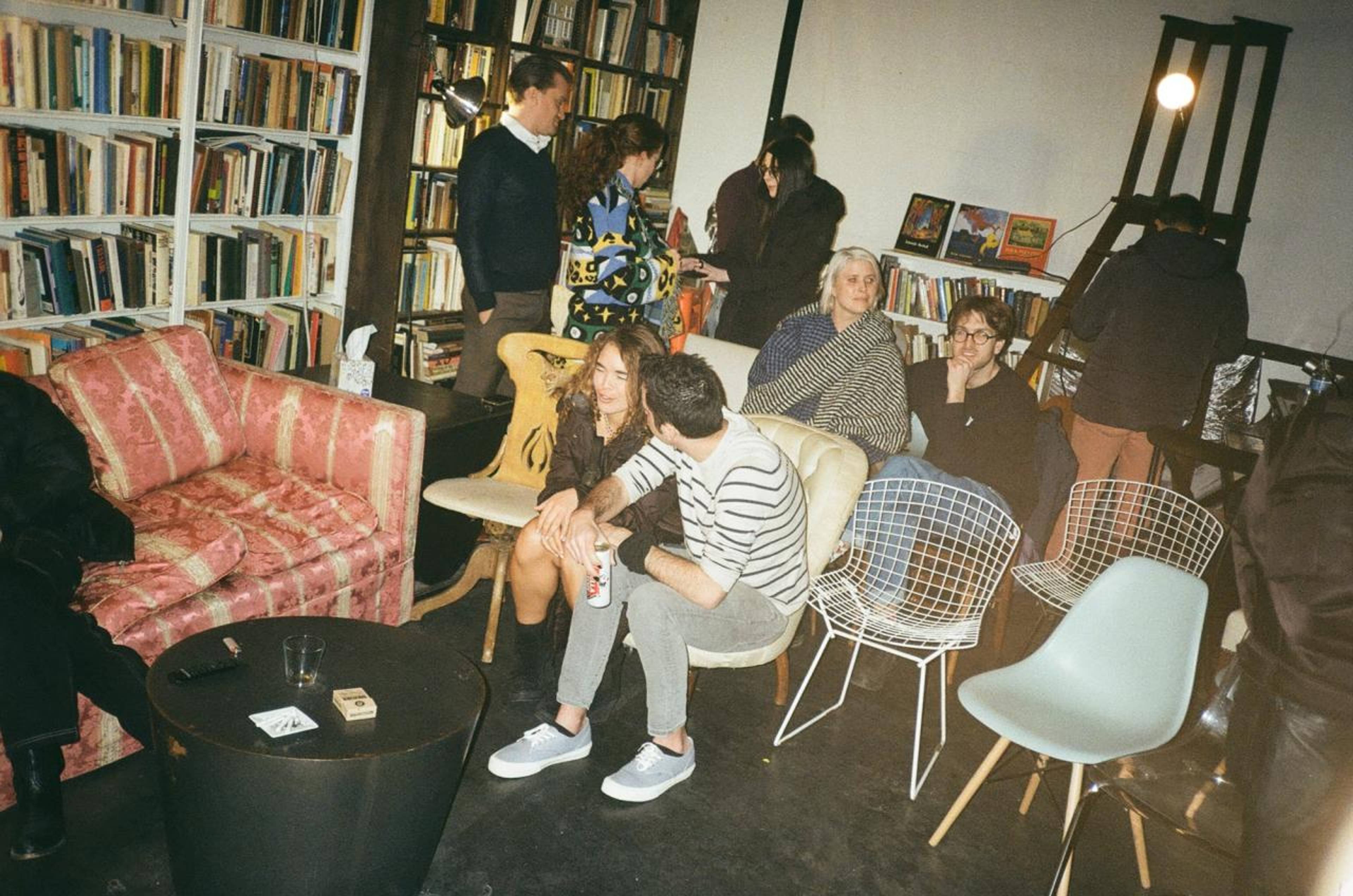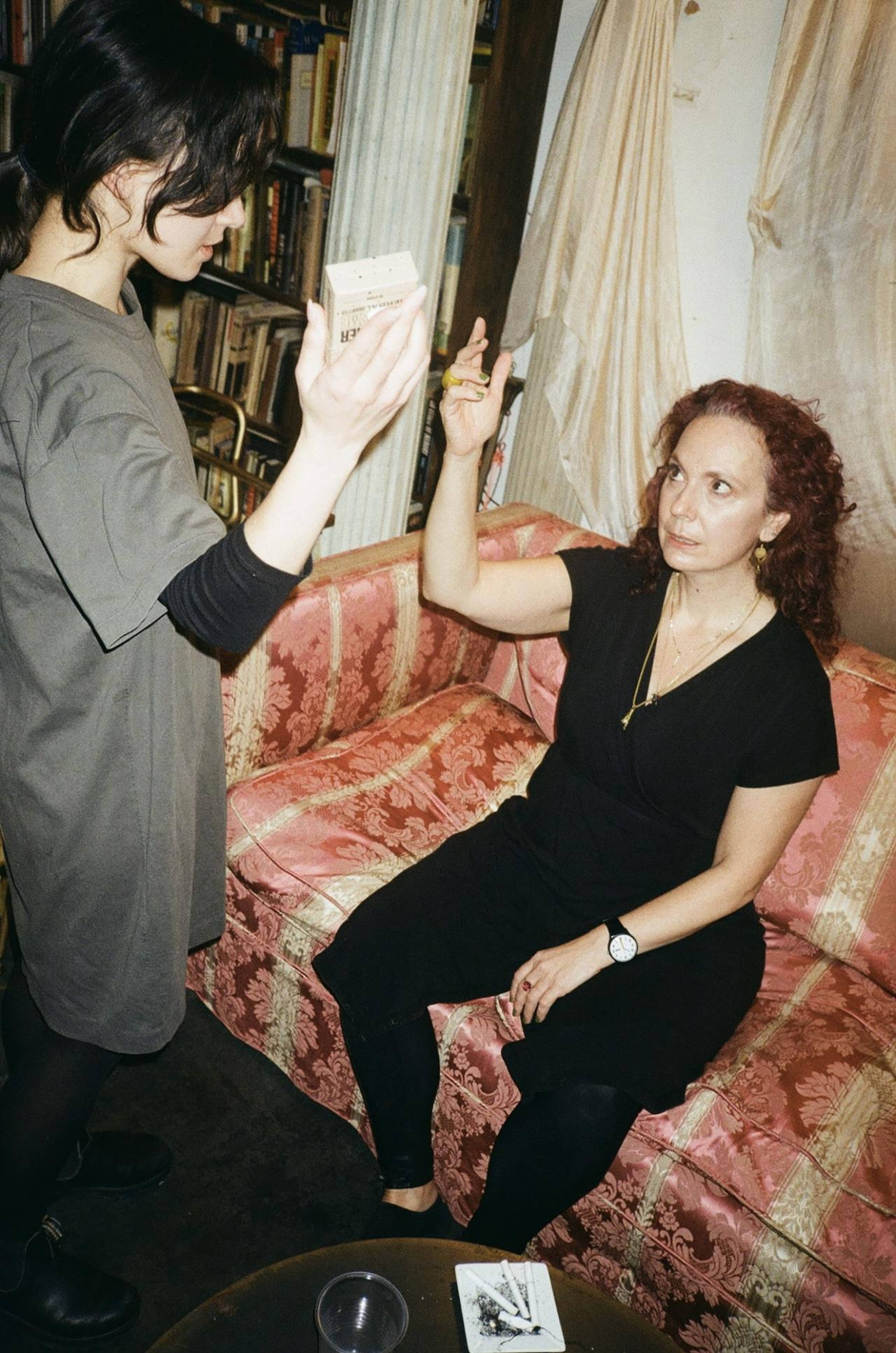We were already in a bad mood. We were at Basement – the third party of the night, the first two were duds – and we were already arguing about who would pay for the Uber. At five in the morning, M and I had gotten into a fight. I think she was mad that I was ignoring her at the party, and she just wanted some attention. Then she did something to me that was cruel, but brief: for just a few minutes, she tried to make me think I was going crazy. While I was talking about some texts she sent me, she interrupted, in a theatrical voice, “What are you talking about? What texts?” and, “Are you imagining things?” and, “Can I verify something for you?” She was gaslighting me. She wanted to see me weak.
It seemed all the more calculated, since M is one of the few people who know, in detail, about that time I was institutionalized for hallucinations. She knew how afraid I was that the psychosis would return. Suddenly, I became helpless, looking into her face, and the ground below me seemed to be phantasmagorically shifting, her eyes were ugly and wild, like a fairytale goblin.
This game she played was brief, but long enough to use it as an excuse to lash out against her. We took a car back to my place. And I began launching a torrent of character assassinations on her, one after another. I know she looked up to my writing, so I eviscerated her ability to complete any of her essays, or even form sentences. “Your experience deserves better prose,” I said flatly. As night turned to morning, I told her I loved her, and that “all this” was “part of it.” Of what – of love? I could be sweet, and then I would attack, and then make it cute again. She stung back. She cried. Incredibly, it was the first time I consciously abused someone, and I discovered that I could be good at it if I tried. I used to joke that I was looking for a righteous excuse to commit an act of violence. You have to take your pleasures where you can get them.
Now M and I can’t be in the same room anymore. The last time I saw her, she was crying on my couch, and I told her she needed to leave because I was sick to my stomach (of guilt). It’s been almost a month, but I still have nightmares of her goblin eyes.
Audience during a performance of Matthew Gasda’s Dover, Beckett’s, New York, 2023
Writer and director Matthew Gasda’s new play Dover (2023) – taking place this month at Beckett’s, an apartment-turned-performance space in New York’s West Village – explores the contradictions and hypocrisies and follies of love. At a chic sixty-five minutes, the play – which marks a significant departure from Gasda’s comedy of manners, Dimes Square (2022) – is a proper tragedy with a beginning, middle, and end. Anna, the play’s protagonist, is a changed woman in all three acts. She is an arthouse filmmaker, esteemed enough to have an early and late style, and even a biographer to whom dictate her life and artistic decisions. Sitting with her shoulders hunched, hands pressed on her thighs, Anna trains her eyes, afraid and alive, at Eric, the biographer, who sits across the room and says, “Your posture is that of someone who’s about to be attacked.” (This posture isn’t described in the script; it is actor Meg Maccary’s winning interpretation.) With leaking passion, Maccary acts childishly, at times endearing and boisterous, and smiles so brightly at compliments, betraying that she knows she hasn’t earned them. She’s obsequious only to her own work.
This scene happens during one of many interviews that Eric has conducted over the course of several years. Yet he still can’t get the material – confessions, telling details – that he wants to finish this biography. Playing Eric, George Olesky dials up the persona’s flirtatious tendencies, which are launched to trigger some reaction from Anna, or just to loosen her up, but his towering subject barely reacts. They banter over which is overrated and undervalued, her early or late work. We learn that the critics think her greatest film is Dover, which is Gasda’s allusion to a line from King Lear (1608) referring to Gloucester, the character who has had his eyes gouged out: “Go thrust him out at gates, / and let him smell / His way to Dover.”
Perhaps it’s a false assumption of love to want to give the beloved what you would want to give yourself.
When Gasda’s play opens, Anna announces to her daughter Charlotte that she is going blind. Charlotte tries to help Anna – comfort her, and also get comfort from her – but Anna pushes her away, continually saying, “Leave me alone.” One of Anna’s contradictions is that while she craves solitude, her actions ask for love. In one of the few tender moments of the play, Anna sits behind Charlotte on the couch, straddling her hysterical, crying daughter in an attempt to embrace her like a koala hugging her pouch. She rocks both of their bodies, counting down from ten as they breathe in unison. They can only sustain an embrace when the daughter’s back is turned to her mother’s womb. “Face yourself, be alone, struggle,” Anna says. “And then come back and tell me you’ve won a great victory over life itself.”
“Mom, I love you,” says Charlotte.
“I don’t deserve it,” Anna replies.
Perhaps it’s a false assumption of love to want to give the beloved what you would want to give yourself. Anna exhibits the tendency of “the great artist” who convinces herself that her genius lies in the exclusive ability to hold herself up to the highest of all possible standards and eviscerate the self into making art that sings. To love, Anna eviscerates, which is also a sign that she loves herself. She criticizes her daughter at every turn. “I see you as objectively as I see everything else – that’s what an artist does; I can’t make exceptions,” Anna says, played by Maccary with an affected regret that is disarming because it is so convincing. But it is a false assumption. Anna surmises her greatest gift to Charlotte is to show her how she became a great artist, but never once in the play does Charlotte mention she ever thought to be one. Like Anna, she only gives what she wants: love, affirmation.
Why is Anna and Charlotte’s love so impossible? In Gasda’s view, art is what gets in the way of love. It is art, and the process of making it, that makes monsters out of artists. One comparison to Dover would be Todd Field’s Tár (2022), a film about a conductor named Lydia Tár played by Cate Blanchett. When I first saw the film, back in December, I was impressed by the lead, who struck me as a proper tragic hero. In her advice to a conducting student during a class at Juilliard, Lydia Tár says, “You must in fact stand in front of the public and God, and obliterate yourself.” Humility: obliteration. I was so stunned by this line that I rewatched the film – I was looking for insight, for heroism. Except on the second viewing, I discovered that Tár doesn’t once, in the entire movie, act out what she told her student. She doesn’t follow her own principles. Tár has no heroic quality. The ability to access or construct aesthetic bliss can never serve as a moral virtue. Although a great artist, Tár is just an abusive person, and bad things happen to her as a result of her bad actions. All her relationships are transactional. Her love for her daughter gets too little airtime to play a significant role in the film’s plot.
For more reasons than aesthetic structure, it is difficult to write an Aristotelian tragedy in 2023. Liberal culture likes to maintain moral binaries between signal-boosting or canceling, virtue and vice – we seem to prefer a world where those are the only two options. Liberal culture is uncomfortable with the moral quandaries that tragedy helps us confront. Impressively, Gasda’s Dover succeeds – where Tár does not – at creating a tragic plot structure around a torquing love story, between Charlotte and Anna, that paints the mother as tragic in her scintillating hypocrisy. Their love’s recurring leaps toward and past each other are ongoing dashes of failed valor. Anna – like the good King Lear, her prototype – loves and fails, disemboweling her daughter with power games. Each person cedes control of themselves in order to control the other. This is their love: heroic but doomed.
Matthew Gasda, Dover, performance documentation, Beckett’s, New York, 22 January 2023
In one early scene, Anna sits at her writing desk, with a pack of cigarettes to her left. Suddenly, she starts to go blind for a few minutes, not the first time for her but the first time in front of Charlotte. As a trick, she snatches the cigarettes away from her, and taunts, “Anna, tell me: Where are your cigarettes?” Anna can’t find them, and Charlotte says, “Do you want one?” She also says, “I’m not gonna hurt you.” Charlotte is playing some sort of game – partly to trigger her mother’s vulnerability and madness, partly to play a show of force to reclaim agency. Charlotte knows all along she is going to give her mother the cigarettes. But Charlotte needs her to be afraid for a little bit, to taste fear for a second. She seemed to ask, Do you trust me? Because I need you to trust me. I won’ t hurt you, and do you trust me not to hurt you, even as I am hurting you? From where I was sitting, I could see the silhouette of both their pale arms outstretched against the light, touching when the daughter placed the pack in the palm of her mother’s hand.
Yet in Gasda’s cunning and maddening ingenuity, the scene played out differently (intentionally, I presume) the second night I saw the play, about one week later. In the second showing, Charlotte never snatches the cigarettes away. They are on the coffee table, and when Anna asks for them, Charlotte simply picks them up, and hands them into Anna’s palm. No foul play. And what difference does this make?
By the third and final act, we have learned that Charlotte has killed herself. She jumped off the roof of the family barn. In grief, Anna has scattered her daughter’s ashes in the garden. Several years later, Anna begins to hallucinate Charlotte’s voice. Still experiencing episodes of blindness, she can only hear her daughter calling, “Follow my voice,” and “I’m right here.” Played by Mar, her tone is annoyed, but resigned, feigning patience and encouragement. “Crawl. Crawl to me,” she says in a sadistic flurry. But right when Anna is about to touch Charlotte, she ducks away, leaving the mother crawling on the floor, saying, “Where are you? I can’t get up.”
Matthew Gasda, Dover, performance documentation, Beckett’s, New York, 22 January 2023
The ending will be read differently, depending on which version you watch. If you see the version where Charlotte, real and alive in the first act, secretly snatches the cigarettes, Anna’s later hallucination becomes a reliving of the worst part of her relationship: when her daughter demonstrated that she has learned a few tricks about control from her mother.
But if you see the version where Charlotte doesn’t steal the cigarettes – while still real and alive – she stages herself as a pure heroine, her love innocent. When Anna hallucinates her daughter’s gesture of dodging away from her mother at the last minute, it proves that Anna’s view of her as a manipulative trickster was in fact a projection of herself, blinding her from the reality of her daughter’s innocent love the entire time. Anna could never see her daughter’s love for what it was. At some point, Anna’s projections have become a totalitarian hallucination – this is true insanity – which is an objective correlative to Anna’s optic blindness.
Did I go insane with M? I don’t know if or when I’ll ever talk to her again, but I imagine her voice saying, “It’s okay, it was just a game.” Some nights, I still hear her voice in my head, as she haunts and chirps and nags. I think about how things were good before they got bad. “I wonder if you’ll ever write about me?” M once asked me, pearly-eyed. This was early in our friendship, back in the summer when the sunlight was abundant. I told her, half-jokingly, “I need conflict to build a story, so I’d only write about you if we had conflict.” Can story exist without conflict? I guess that’s the question. Maybe this is the flaw of storytellers, even inherent in the poetics of story as such – that they preclude uncomplicated harmony in their craving for drama.
Perhaps Anna’s ear for conflict, and her tendency to engender it, is precisely what made her a great artist and impossible to love. Yet love persists in impossibility. I take that to be Charlotte’s final gesture, at the play’s ending, in what appears to be Mar’s (quite arresting) improvisation: The hallucinated Charlotte runs back to Anna at the last minute, takes her hands in her own, smiles, and says, in what is the play’s final line, “Hi, Mama.” This line doesn’t appear in the script, yet it’s a telling line. It is as if Charlotte, either projection or ghost, is saying, It’s okay, it was just a game, I’m still here. I have never left. I’ve been with you the whole time, even in death.
___
Dover
Beckett’s, New York
Feb – Apr 2023





